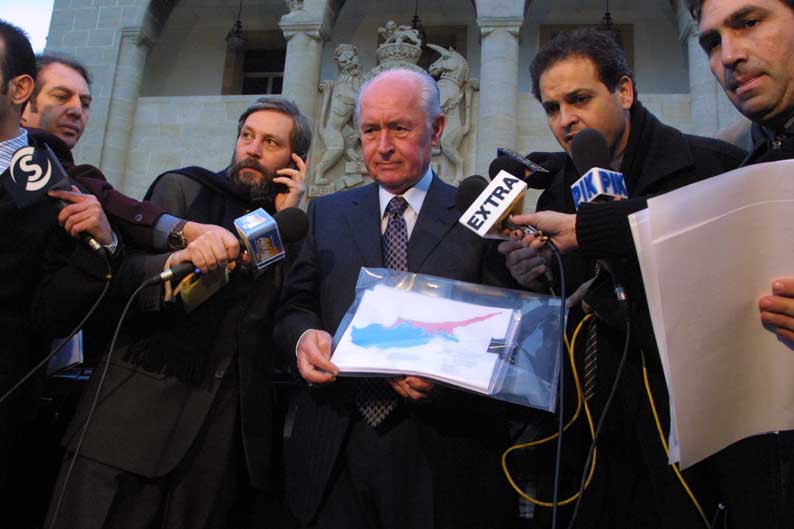Countries are now being sorted into tiers based not on economic logic, but on political loyalty
Just over 100 days since “Liberation Day” – the moment President Trump unveiled his new international trade rules – a seismic shift is underway in the global economic order.
On August 7, the latest round of tariffs took effect, offering a clearer picture of what the post-globalisation era may look like under Trump’s vision. What we’re witnessing is the transformation of tariffs from economic instruments into tools of geopolitical coercion.
Countries are now being sorted into tiers based not on economic logic, but on political loyalty. America’s favoured partners – like the UK and Saudi Arabia – face a modest 10 per cent tariff. A second group, including the EU, Japan, and South Korea, received 15 per cent – a nod to their strategic importance, but not exactly a mark of affection. These nations were among the few to strike last-minute trade deals with Washington before the August 1 deadline.
Then there are those facing punishment. Canada, for example, is now subject to a staggering 35 per cent tariff – not for trade violations, but for daring to announce their intention to recognize the state of Palestine alongside the UK and France in September. While the UK escaped retribution (a sign that Trump wants to keep the UK distinct and apart from the EU), and France was shielded by EU membership, Switzerland was not so lucky. It faces a 39 per cent tariff – the rationale unclear. Brazil was hit with 50 per cent, as a penalty for putting Brazil’s previous President Jair Bolsonaro (a Trump ally) on trial.
China and India find themselves in limbo. Beijing’s 30 per cent tariff could spike when the current “truce” ends on August 12. Meanwhile, India has been warned of a possible doubling of its current 25 per cent tariff rate, largely due to its purchase of Russian oil and membership in BRICS – which Trump now brands the “anti-America group”.
This is geoeconomics in action: the use of economic levers to achieve foreign policy aims. But this is not diplomacy – it’s coercion. And it’s unraveling the very international trade system the US helped build after World War II, from which it benefited enormously.
The Most Favoured Nation (MFN) principle – the cornerstone of the global trading system – is now being systematically abandoned. Established after the destructive trade wars of the 1930s, MFN requires equal tariff treatment for all World Trade Organisation (WTO) members.
One would hope that maybe Trump and his economic advisers have a cunning plan that would prove years of economic thinking as faulty. After all, economists are known to disagree on just about everything. Somehow, I have my doubts if recent events are any guide. After the Bureau of Labour Statistics (LBS) announced recently in the US revised employment figures showing a weakening economy, Trump was so enraged, he fired the head of LBS. One would have thought that given his call of bringing interest rates down, he would have used the weakening economy as a reason to justify his position. No such epiphany. For Trump no statistic can ever be bad under his presidency. One dreads what the impact on accurate statistics will be with an LBS chief aiming to please the president.
On trade, replacing the old order with favouritism, vendettas and backroom deals, the US is eroding the predictability that made global trade thrive.
The long-term damage to the US economy could be profound. As The Economist noted in its August 3 edition, this approach threatens to fracture supply chains, alienate allies and invite retaliation. Meanwhile, the benefits of globalisation are being forgotten. Unfortunately, Trump has been fixated that developing countries were using their status to extract more and more out of the overall world economic pie. That may be true to some degree. But trade is not a zero-sum game.
The trade system has enabled the extreme inequality that existed between nations to improve dramatically with nations like China and Vietnam lifting millions out of poverty through integration into the global economy. That is a good thing of itself. What is less recognised is that the overall pie has also increased for everybody involved, developed countries included.
The loss of manufacturing in the US (something that Trump always complains about) has been the driving force behind the development of the tech sector (a process that economists describe as creative destruction) with overall immense gains for the country (something that Trump seems to fail to grasp).
Trump’s fixation on abandoning the existing economic model risks undermining the basis that propelled America forward. Growth is not a race, and global prosperity is not a pie to be sliced. Obsessing over being “number one” in everything blinds us to the absolute gains that come from cooperation, innovation and trust. Unfortunately, the world today seems to be viewing being first as the measuring stick where the relative position of someone is more important than the absolute level of well-being.
As I sit by the Mediterranean, contemplating this shift, I wonder: in a world increasingly driven by rivalry over reason, how much is enough? If I manage to get my brain to tackle it in a non-biased way, I may write about it next week. Or are the Mediterranean Mai Tai’s good enough? Perhaps I should strive for those Caribbean ones!
Loukis Skaliotis is an economist







Click here to change your cookie preferences